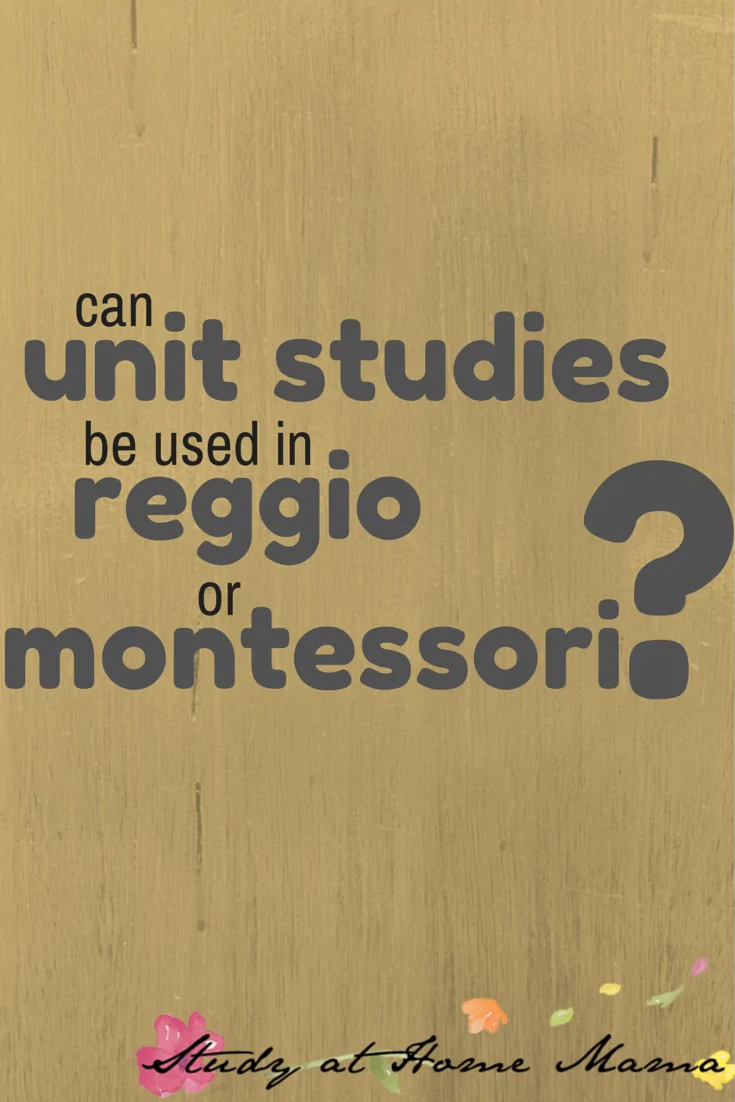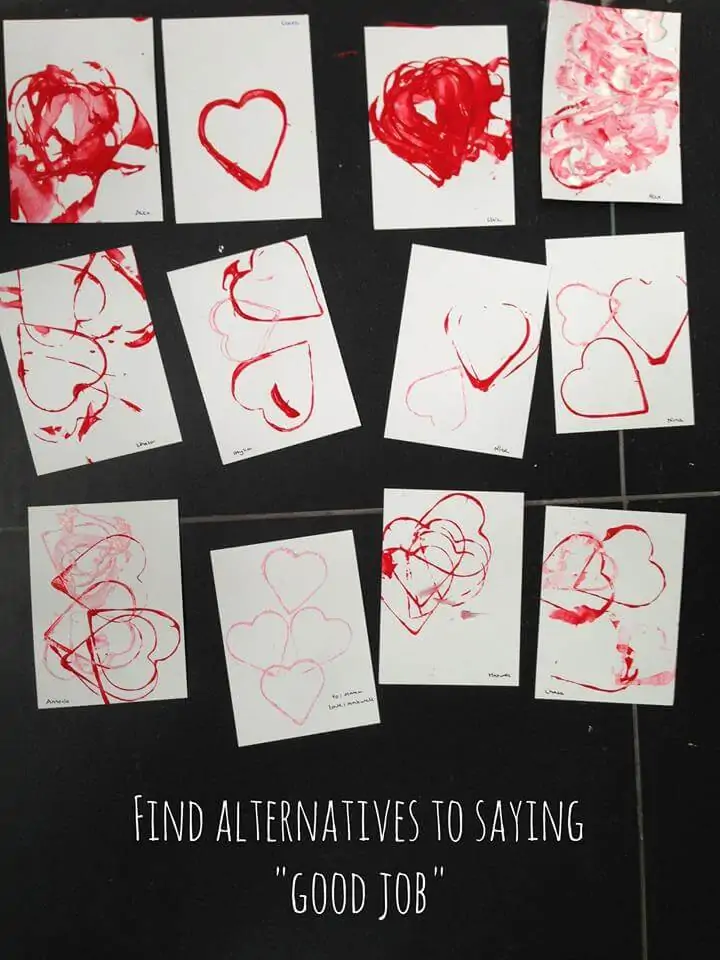Unit Studies
If you were to read a Montessori album, you would not see any mention of unit studies. They are noticeably absent from Dr. Montessori’s writings as well, but there are no notations rejecting or deploring them. Unit studies are a relatively new concept, though they did exist in a related form when Montessori was attending a Froebel kindergarten in her own youth.
What is a Unit Study?
A unit study (for our purposes) is a themed or cohesive lesson plan that centers around one central idea or interest, but attempts to incorporate as many curriculum subjects as possible.
Unit studies were a very new concept at the time that Dr. Montessori was writing and evolved slowly within contemporary movements, such as Reggio Emilia.
You can have an effective curriculum without every employing a single unit study, and there are those who believe that unit studies are best when they remain solely within one curriculum area (these are often referred to as long- term projects).
A unit study can be a wonderful enhancement to your curriculum — if it’s a unit based on “sensitivities” or interests of the child. However, you could pull off the best, most creative unit study, but if its not truly based on interests of the children, you’d likely have done just as well putting a disconnected assortment of non-themed activities out, as the children won’t be thirsty for more knowledge about their topic of interest.
That said, the child might not be showing an active interest in something, but based on your knowledge of the child you can determine if the child is likely to become interested in the unit study when presented.
Unit Studies Make Subjects More Enticing
A unit study based on an interest shared by the children has the capacity to entice children to works that they may have previously overlooked or avoided, because they are interested in the “themed” element. This can be abstracted from the concept of a unit study — for example, if you have one child who is really interested in dolls but has not shown interest in transfer work, maybe you can set up a single tray just for them with the idea of transferring “baby food” into smaller jars or bowls to feed to a baby doll.
Unit Studies Encourage Diverse Thinking
The long-term view of unit studies are that they enable a child to start thinking about topics in diverse ways, so that when they develop their own (long-term) projects, they are naturally inclined to consider and explore those diverse aspects. It allows them to understand how multifaceted any topic can be, which also readies them to be able to study complex issues with due consideration and understanding: for example, they will be able to look at the different definitions and considerations involved in determining “continents” (geographic, geologic, political, cultural, etc.) and be able to fully understand the merits of each criteria.
Unit Studies Can Compliment Curriculum
Unit studies don’t need to be the sole focus for the week. My approach has changed drastically from when I first began our Montessori journey, when Ella was a Montessori Toddler. I used to change out all of our regular works and materials to themed materials whenever we changed unit studies — it was time-consuming and exhausting, though the children loved it. I loved it, too, but the time naturally came for me when I wanted to continue offering unit studies but I needed to find a more sustainable way to do it (and ensure that the children maintained their natural work progressions).
Now, I have 8 separate stations in the work room (in addition to the playroom) and I change out only one of those stations to accommodate a new unit study. I can make the presentation a bit more dramatic and it is easier for me to set up and put away, but in future I might dedicate that shelf to a set subject (likely Science) and will just change out one work in each individual station. I like that approach because children “discover” the themed work more naturally and the habit of going to the shelf that they in a sensitive period for is nurtured.
Now, I would not remove a material that a child was interested in to make room for a unit study, and I don’t consider unit studies a “break” from our regular curriculum. They are an added component for deeper learning that is available to the children alongside their usual works.
The idea that unit studies do not need to be all encompassing was a revolutionary one for me, but it has made our unit studies fit more naturally into our overall learning plan. It’s also less pressure if I want to do a special unit study that some of the children will likely not be interested in, though I do try to create or incorporate at least one work that every child will be drawn to.
Can Unit Studies be Used in Montessori or Reggio?
For the reasons discussed above, unit studies can help enhance the student-teacher experience and create interest in a subject where previous there was none. Yes, we can and should respect a child’s natural processes to guide them towards work, but it is also our responsibility to entice the children to do their work in natural and subtle ways. This is why beauty in the environment and materials is such a key factor in both Montessori and Reggio.
The long-term goal for Montessori and Reggio is to empower children to become self-directed learners who take on long-term projects. Because unit studies give glimpses into various ways of approaching a subject matter, they naturally prepare children for the mentality needed for long-term projects.
Unit studies do not displace regular learning, unless you prefer special themed days. They are used to compliment the core curriculum and enhance it. As long as you are still hitting curriculum objectives and are not misusing materials for the purposes of the unit study, I think it’s a great thing.
Over the next couple of days I’ll share about how I organize and develop my unit studies, and I’ll share my curriculum planning material! What are your thoughts on unit studies?



Interesting perspective. Dr Montessori doesn’t mention unit studies because they do not fit with the method of learning. In Montessori it is about the method and process over content. In my training we were warned off themes and units as they stifle the child’s interest-led learning and they generally get in the way of the method. I would be reading Dr Montessori’s works rather than looking to an album.
Thanks for your perspective, Andrea. I think that is true when it comes from an adult-imposed unit study, but in the small numbers that I am dealing with (or a homeschool situation) the children can actively design the unit study, and it can be a way of encouraging children to explore related concepts within subjects that they would otherwise avoid. Obviously the children should never be forced to do a unit study and should be able to follow their own interests whenever they present themselves.
Especially if you do not have access to thousands of dollars of Montessori materials, embracing other concepts and figuring out how to make them work for your own individual situation is key to success.
I love unit studies because they are fun for me (as the teacher and mother) to put together and I love to see my child embrace the different elements of the study. I believe that a unit study can enhance the learning of a child.
I totally agree 🙂
I discovered this post from an article on the Male Montessorian, from the site Rogue Montessori. Your ideas are very well researched and you have presented the case for using themes in the context of being child-centered. I don’t get the sense that these themes have to “end” and disappear from the environment, but rather keep developing as the child/ren create deeper ways to explore. I also think there is a great case for offering themes in the environment that are subjects loved by the teacher (ex: Picasso, or hummingbirds, or even solar system, etc) because the children pick up on the adult’s enthusiasm and expertise.Your article is very well done. Thanks!